Forget Spotify Wrapped and Apple Music Replay – this unsung app beats them both
It's music recap season, but Last.fm is still the unsung hero
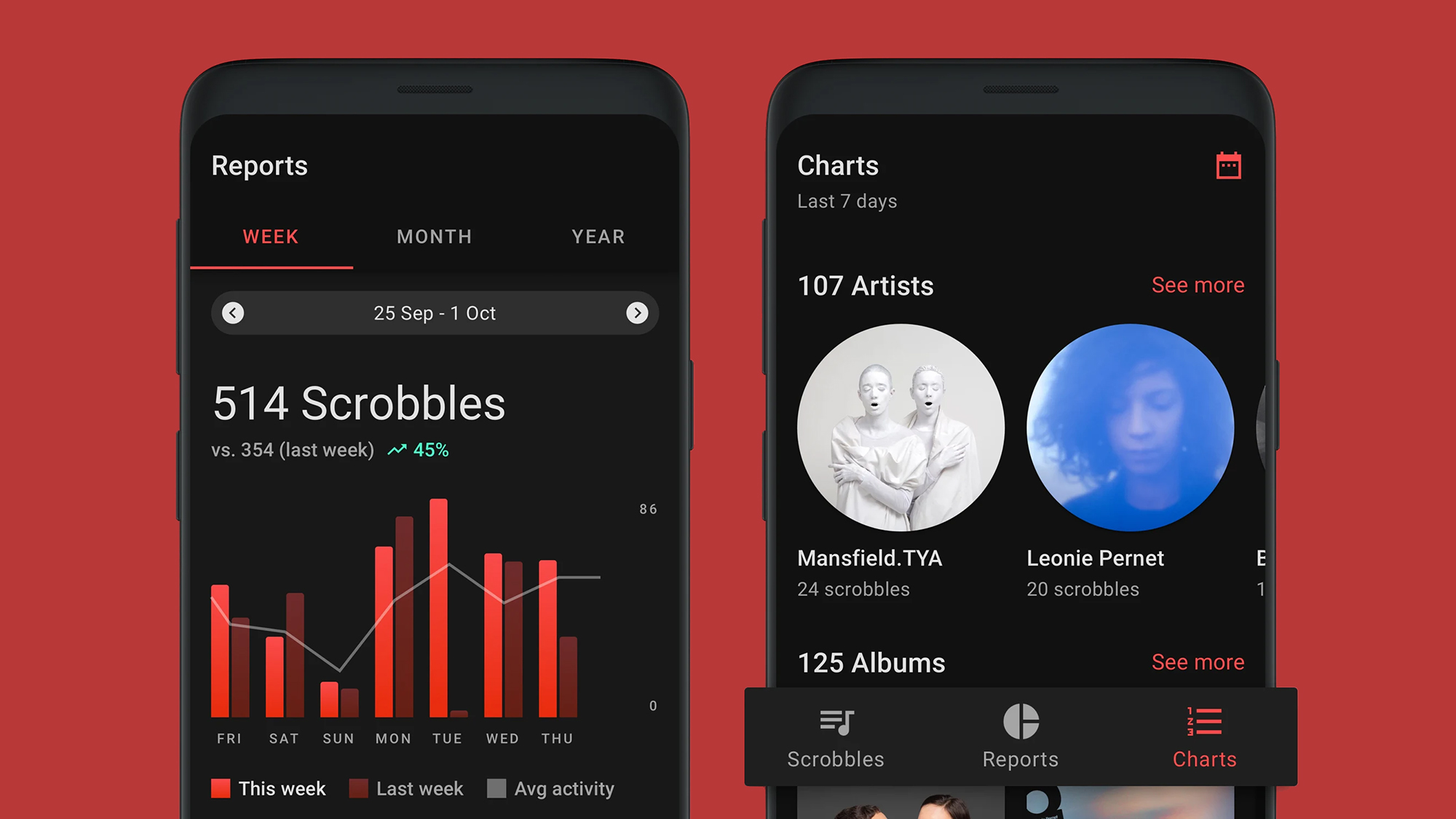
Sign up for breaking news, reviews, opinion, top tech deals, and more.
You are now subscribed
Your newsletter sign-up was successful
It's music recap season, with Spotify, Apple Music, and YouTube Music all dropping their annual -year-in-review features within a day of each other. Going off the social media reaction, these 12-month reviews of listening habits are more popular than ever – but there's actually a veteran music tracking app that beats them all.
That's not to say that Spotify Wrapped 2023 or Apple Music Replay 2023 are bad – in fact they're very good, in their own way. But they also have their limitations, and serious music stats nerds will appreciate the more comprehensive service provided by another tune tracker: Last.fm.
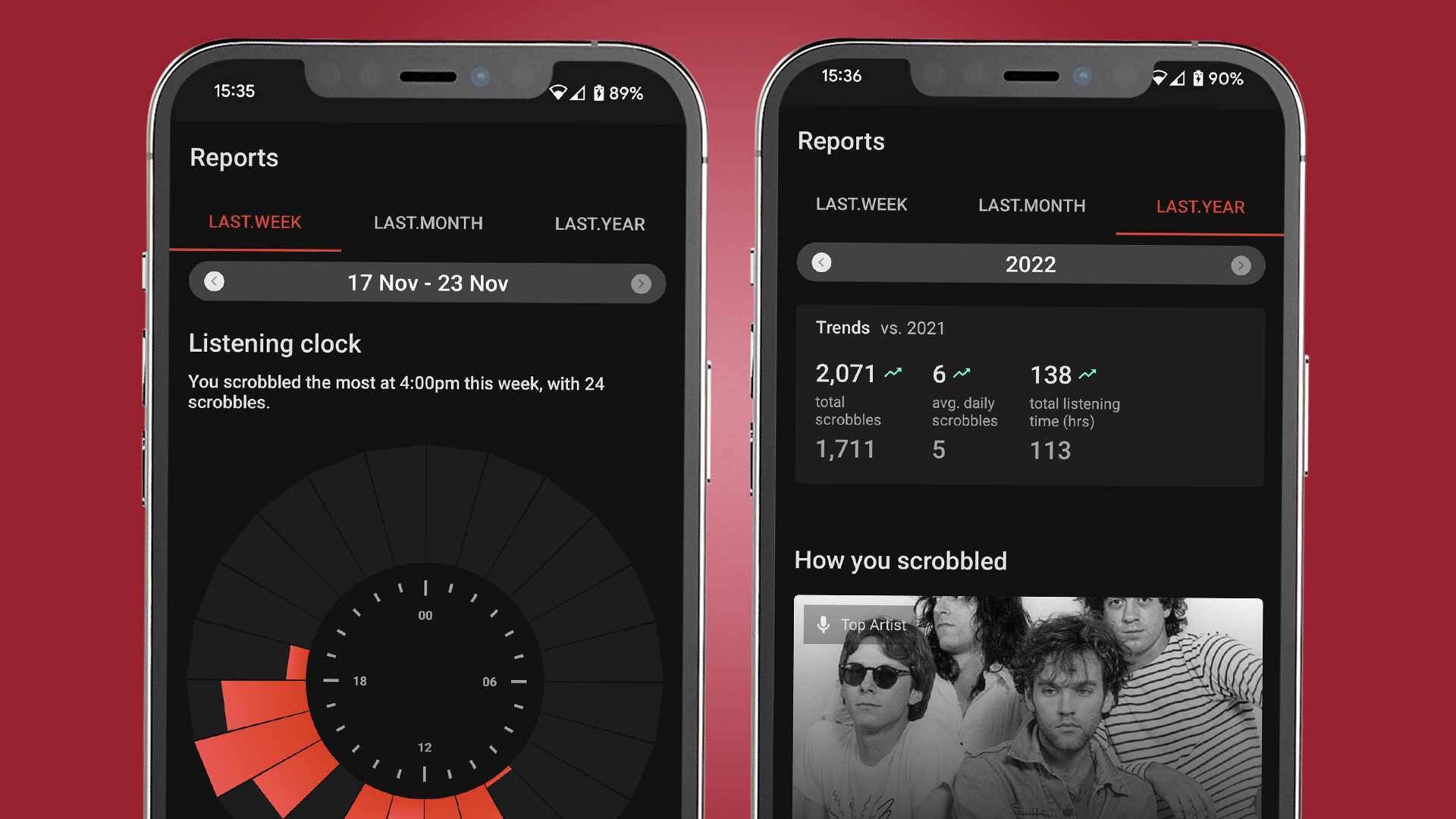
Last.fm has been around since 2002 – some eight years before Spotify opened its doors to the public – and joined forces with an app called Audioscrobbler right from the beginning to provide what it called 'scrobbling': logging your music listening history across multiple platforms and apps.
The functions and appearance of Last.fm have evolved quite a bit in the last couple of decades, but it's still there – quietly chugging along and recording everything you listen to, ready to recap your last year (or day or week) whenever you want it to. Here's how it stands up now to what Apple, Spotify, and Google have to offer.
The modern music recap
Spotify Wrapped and its equivalents are a lot of fun: in a breezy, colorful slideshow, you get a look back at your past year in music. Everything is presented in a social media stories format that's easy to tap through (the format Snapchat pioneered and everyone else copied), and more and more apps are adding this is a feature, from video streaming apps to podcast players.
It's something cool to share with friends, it's a kind of validation of the type of person you are, and it's a bit of a nostalgia trip, too. We liked the way this year's Spotify Wrapped matched up your listening habits with a particular city in the world, and the way Your Recap on YouTube Music showed how our music moods changed across the year.

Spotify is big enough to get the big names in music involved, too: having listened to a lot of boygenius this year, it was very cool to see that one of the Wrapped sections was a video from Phoebe Bridgers, Julien Baker and Lucy Dacus saying thanks for all the listens. I know all their other fans saw it, too – but it was still a cool moment.
Sign up for breaking news, reviews, opinion, top tech deals, and more.
It's fair to say that Apple is still finding its feet here: its Music Replay is limited to the web (you can't find it in the mobile apps), and doesn't go much beyond the basics of listing your top songs, your top artists, and how many hours of listening you banked. It's still an enjoyable read, and you get a nice playlist-of-the-year, but there's definitely room for improvement.
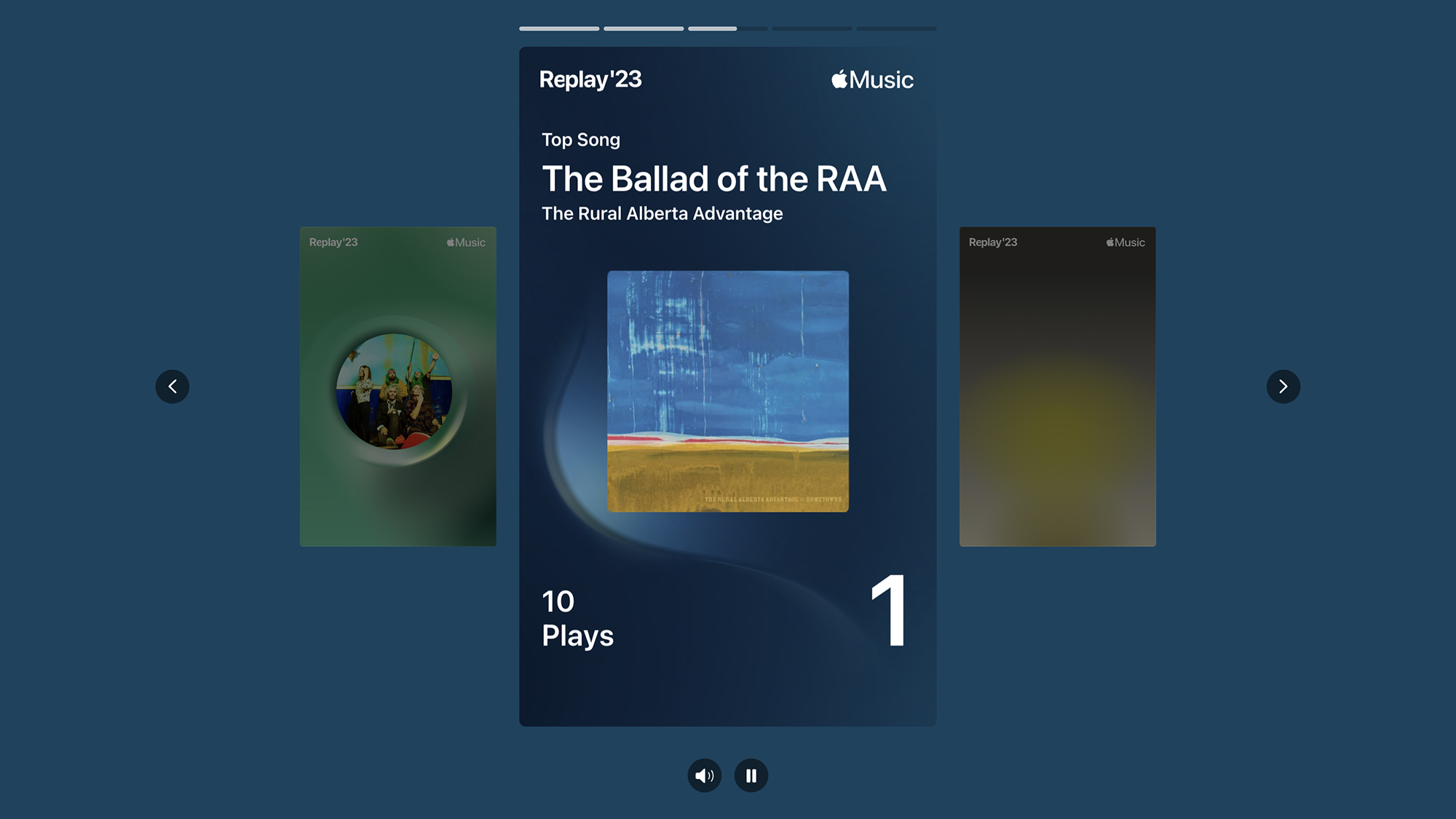
As for Last.fm, it doesn't go in for annual recaps of the year: you can actually check your listening over the 12 months whenever you like, whether that's at the end of November, the end of December, or any other time. You can see what you've been listening to lately, and what you were listening to in the same month a decade ago.
Head to the front page of Last.fm and you can see what a treasure trove of music data it is. With close to 2 billion total scrobbles now logged, you can see which tracks are currently spiking in popularity, how listening habits vary across the world, and the songs that Last.fm are tapping the 'love' button on today.
The Last.fm difference
I realize that the average person isn't subscribed to Spotify, Apple Music, and YouTube Music like I am – but as a tech journalist it helps to be able to test out and write about all these apps. And it's likely that there are quite a few music enthusiasts out there signed up to more than one service (remember that YouTube Music comes bundled with a YouTube Premium subscription as well).
There are some real distinctions between these streaming apps, too: the smart playlists of Apple Music, the way your Spotify listening can be synced across multiple devices, and the way YouTube Music does the opposite and doesn't sync across multiple devices (handy if you don't want your driving playlist interrupting your chill out mix for working at your desk).
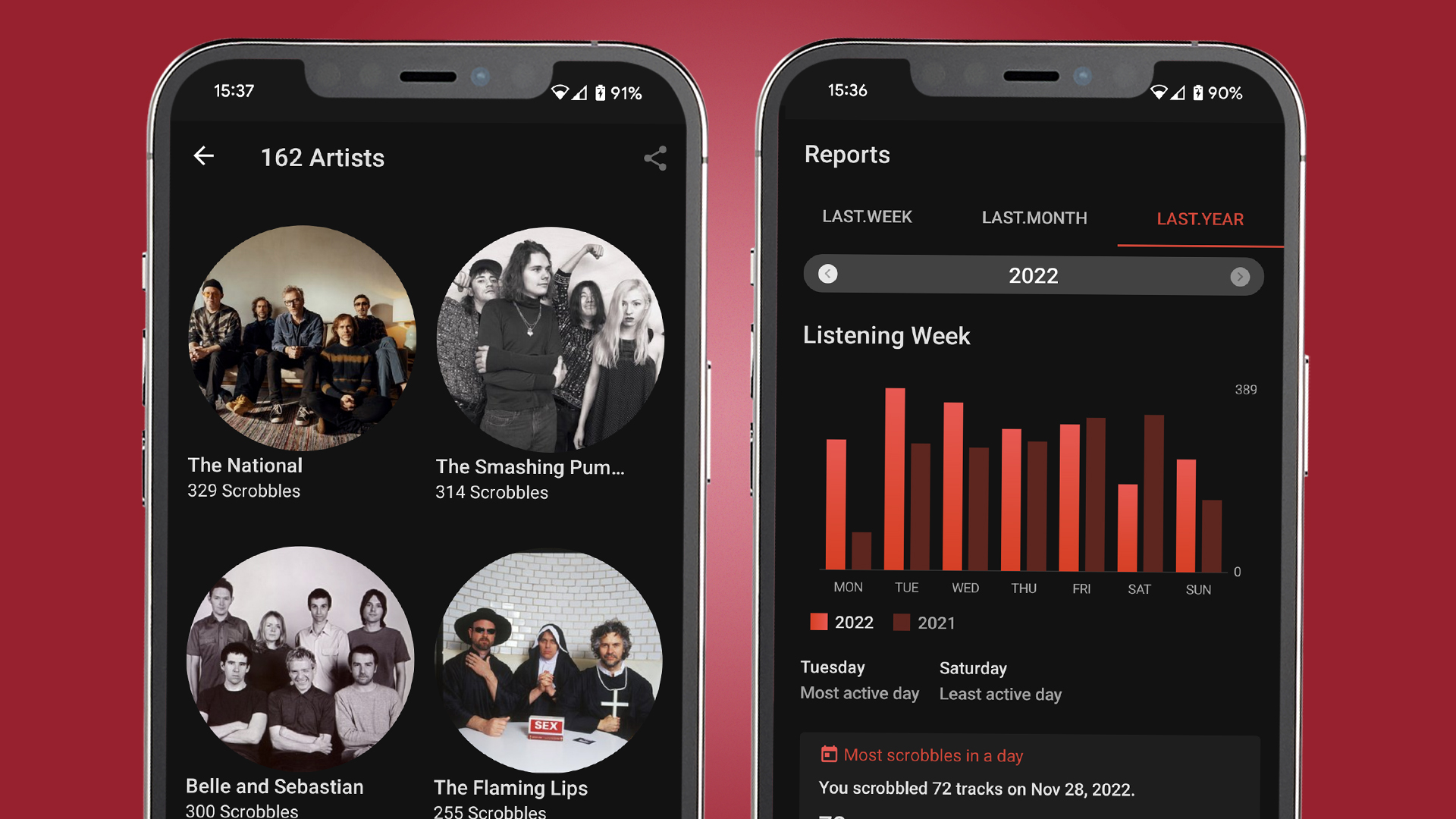
The point is that Last.fm tracks listening across just about every app, device, and platform – the big names that we've already mentioned, plus Deezer, Tidal, SoundCloud, Sonos speakers, and much more besides. If your music listening is fragmented and siloed in different areas, Last.fm pulls it all together, giving you a comprehensive overview of everything you've ever heard.
I don't actually use Spotify that much, but I did use it a lot on my phone around the time I went to a boygenius gig in the summer: that meant my Spotify Wrapped 2023 was dominated by that one particular band and didn't really reflect my year in music. With Last.fm, I can look at everything I've heard in 2023, 2022, 2021, or April 2012 (when I apparently spent a lot of time listening to Alt-J).
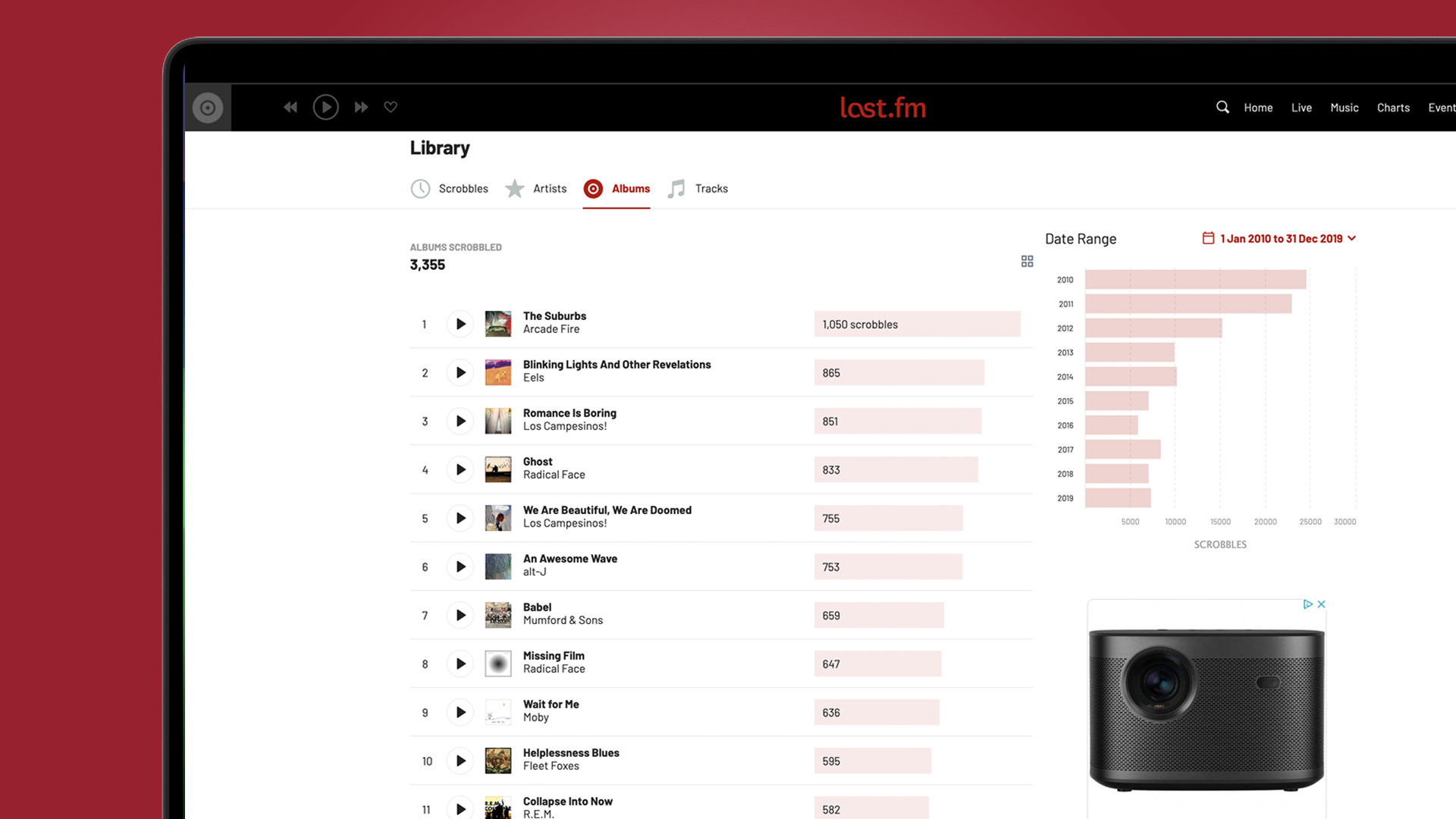
Last.fm gives you more details on your music listening habits, over a longer period of time, in more apps and on more devices. It'll even tell you how much new music you've been listening to, and what time of day you do the most listening. The other area where it excels is in music recommendations: its algorithms are super-smart when it comes to taking everything you've already listened to, and suggesting new stuff. I've come across many a great new band thanks to Last.fm.
This is all free to use by the way, though you can get a Pro account for even more stats. If you find that just one music recap – in one app, for one year – is a bit limiting for you, then consider signing up for Last.fm. You might find it ends up knowing your music tastes, and the new music you should be listening to, better than you know yourself.
You might also like

Dave is a freelance tech journalist who has been writing about gadgets, apps and the web for more than two decades. Based out of Stockport, England, on TechRadar you'll find him covering news, features and reviews, particularly for phones, tablets and wearables. Working to ensure our breaking news coverage is the best in the business over weekends, David also has bylines at Gizmodo, T3, PopSci and a few other places besides, as well as being many years editing the likes of PC Explorer and The Hardware Handbook.